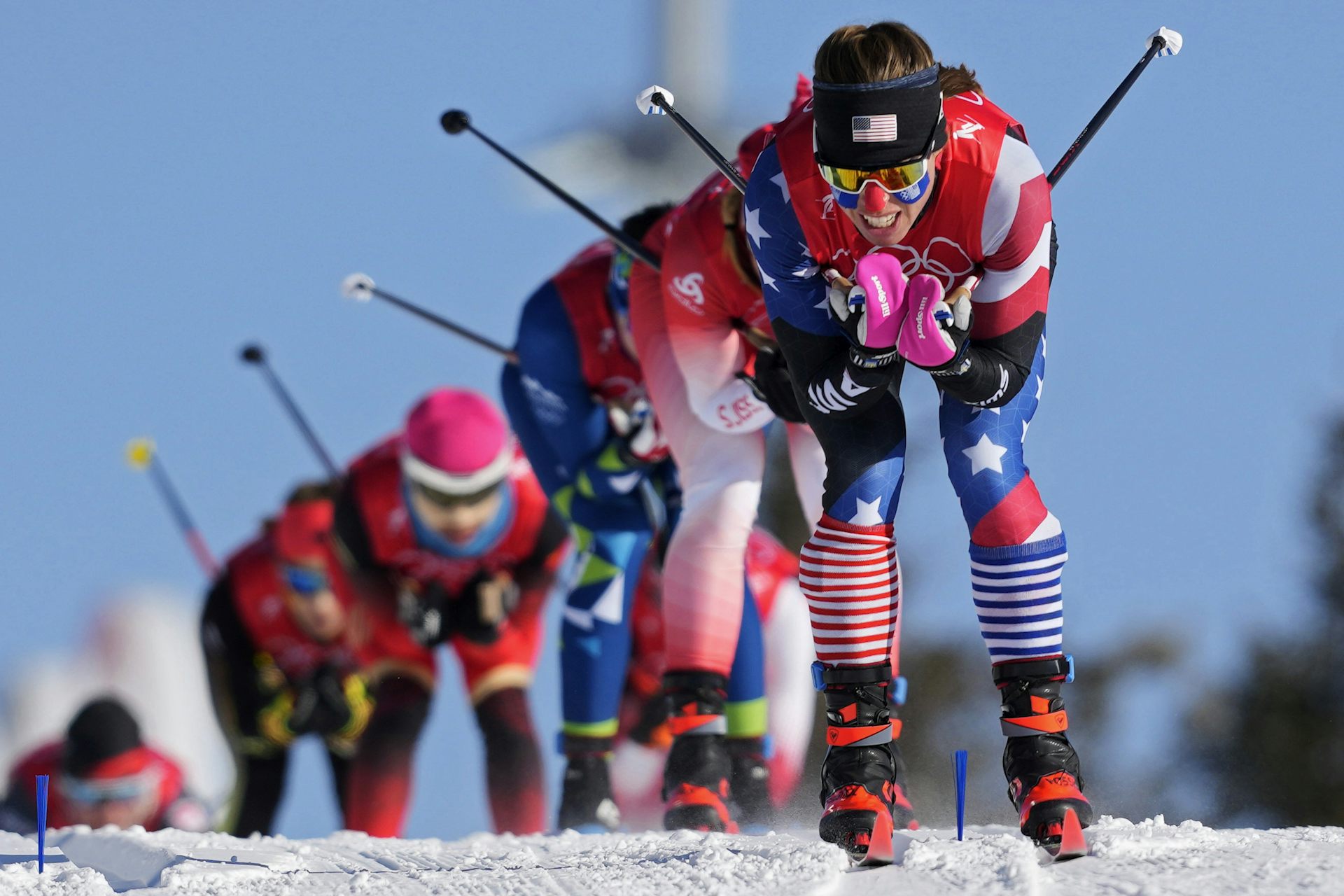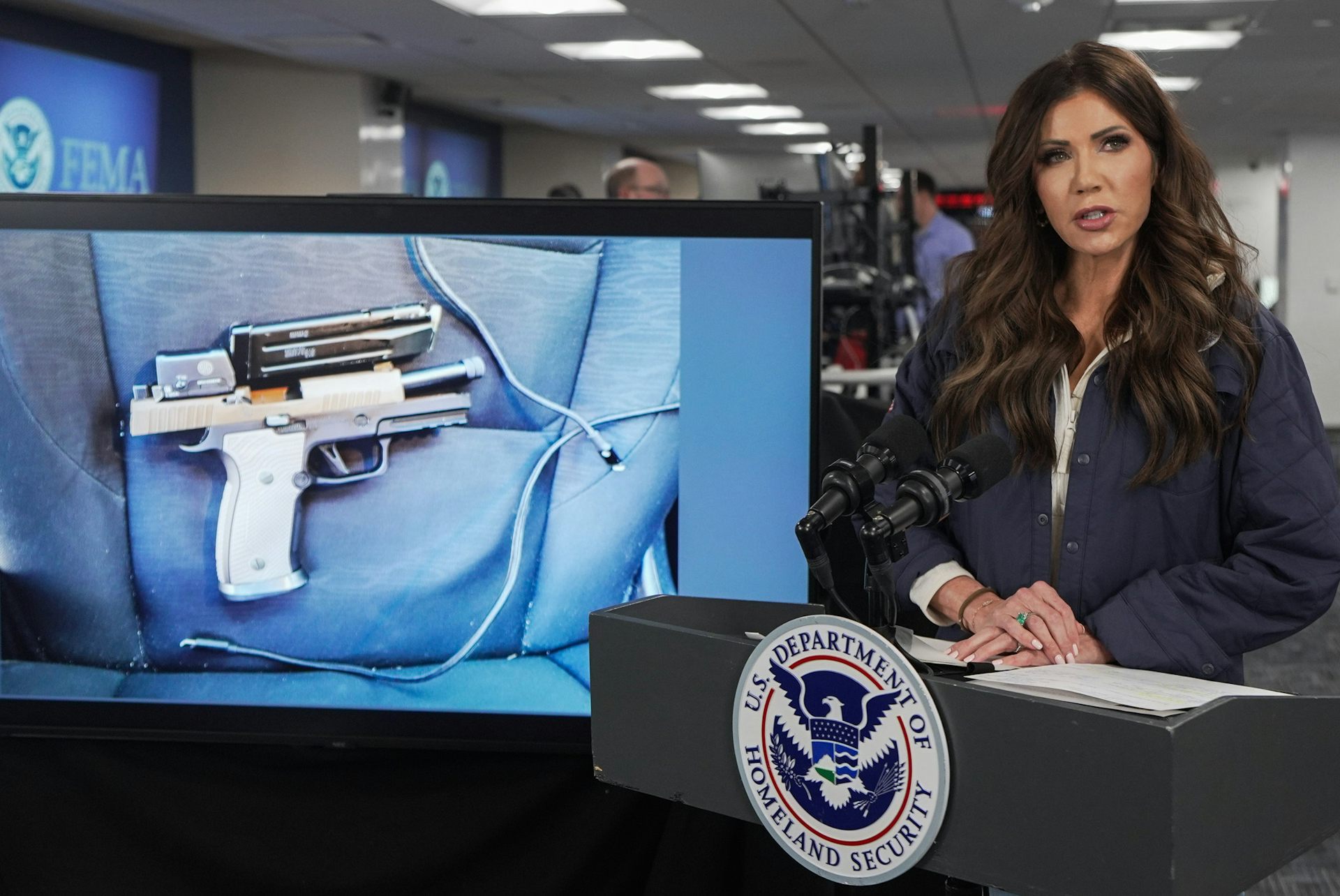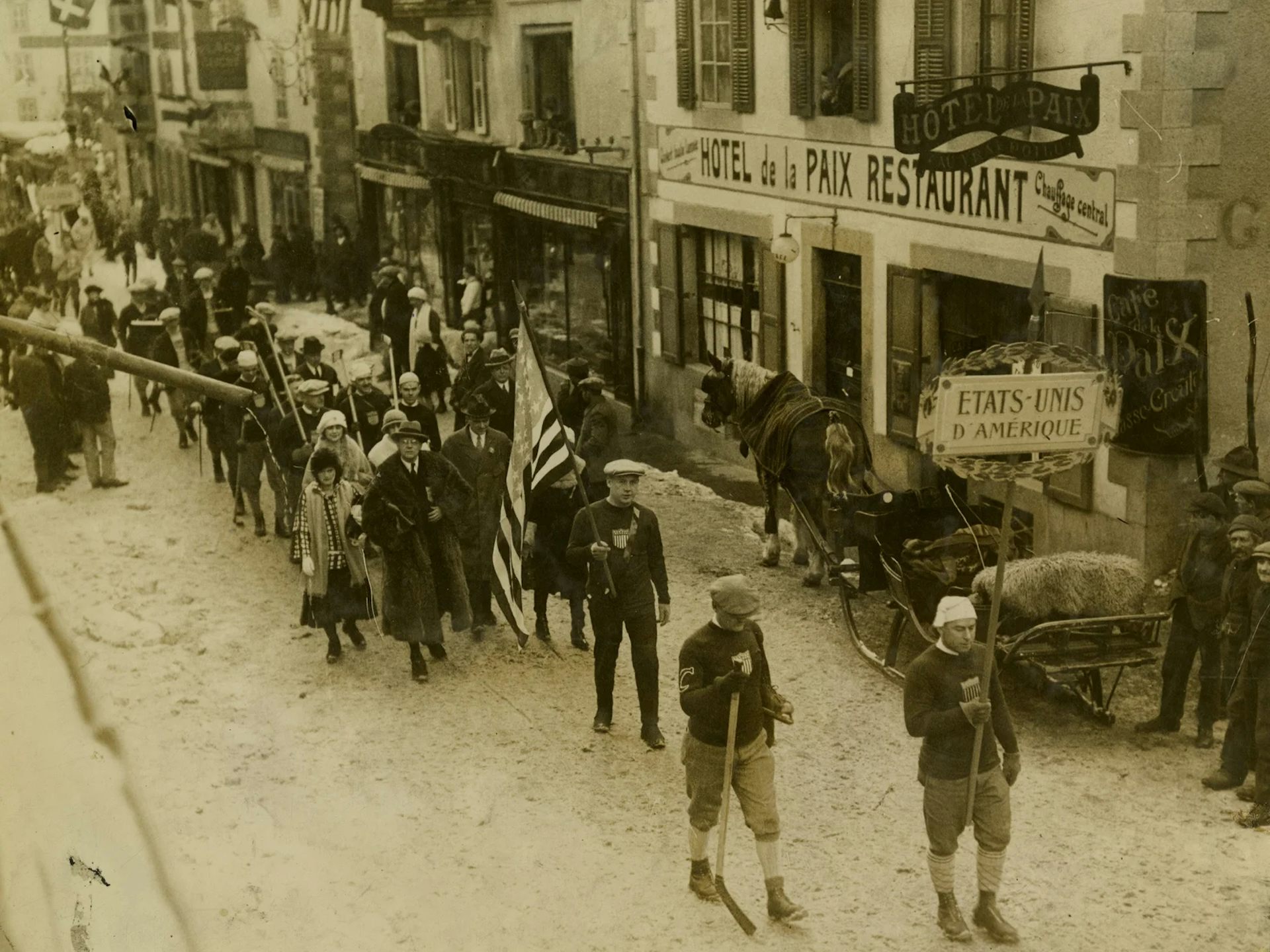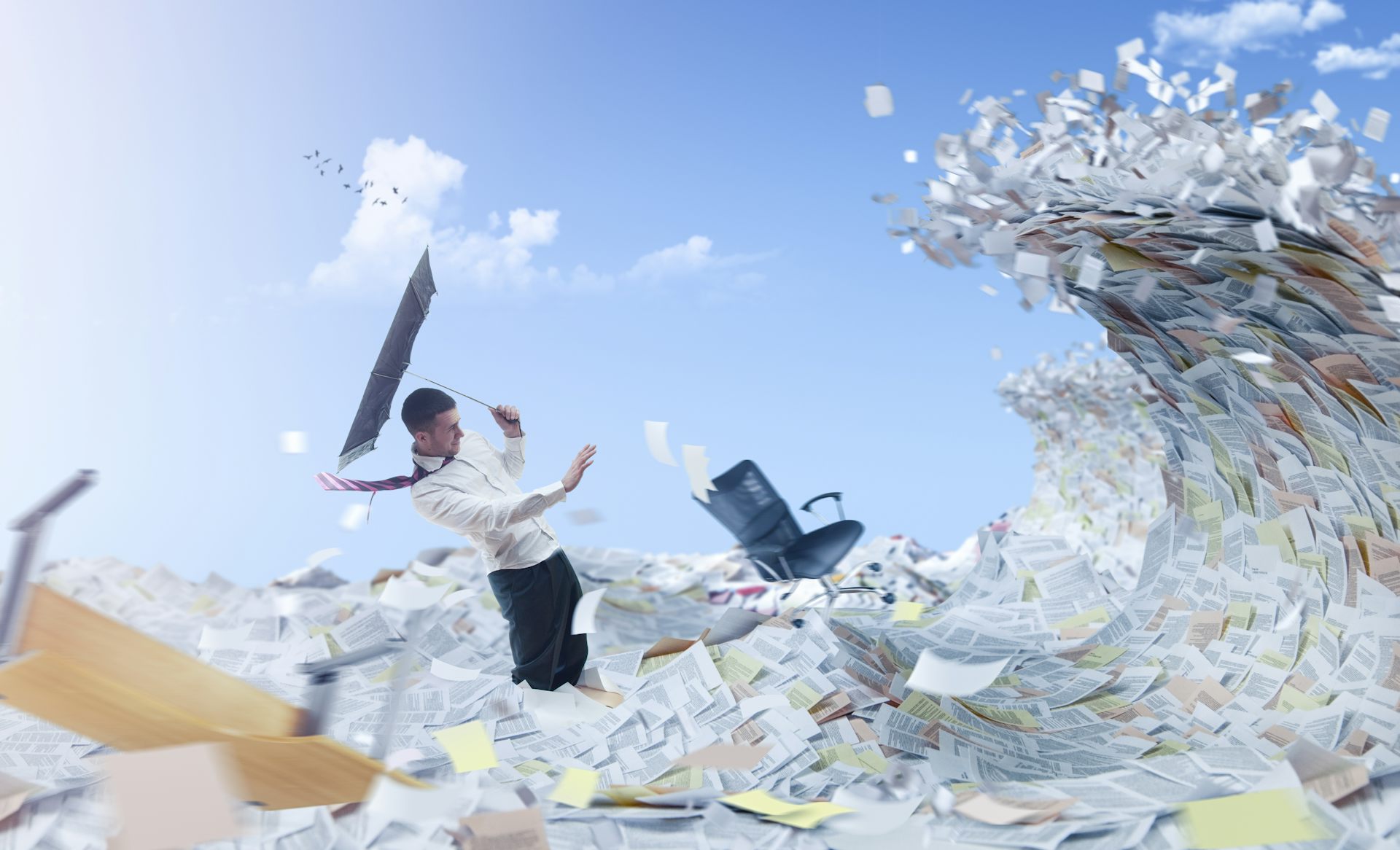Ukrainian science is struggling, threatening long-term economic recovery – history shows ways to sup
The war in Ukraine has led to the destruction of scientific infrastructure, caused many Ukrainian researchers to leave the country and disrupted the work of those who have stayed.
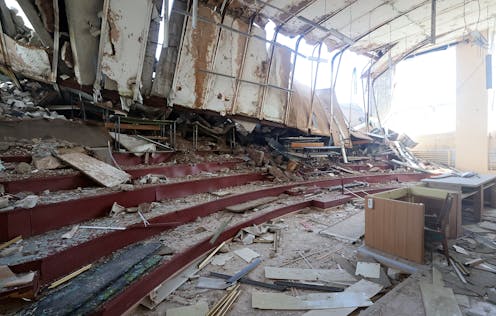
The Russian invasion of Ukraine in February 2022 has done a lot of damage to the Ukrainian scientific system. The ongoing war has damaged physical infrastructure, thousands of Ukrainian scientists have fled their country to seek safety abroad, and the researchers who stayed have experienced significant disruptions to their work.
We are three economists who study the benefits of science and knowledge production, and a medical researcher originally from Ukraine. Two of us are also co-founders of #ScienceForUkraine, a grassroots initiative that helps support Ukrainian scientists and students.
Damage to a country’s science system – like what is happening in Ukraine – can harm economic growth for decades. However, research shows that local and international policymakers can minimize this harm by providing direct funding to researchers, creating remote research positions and offering research opportunities abroad to Ukrainian scientists.
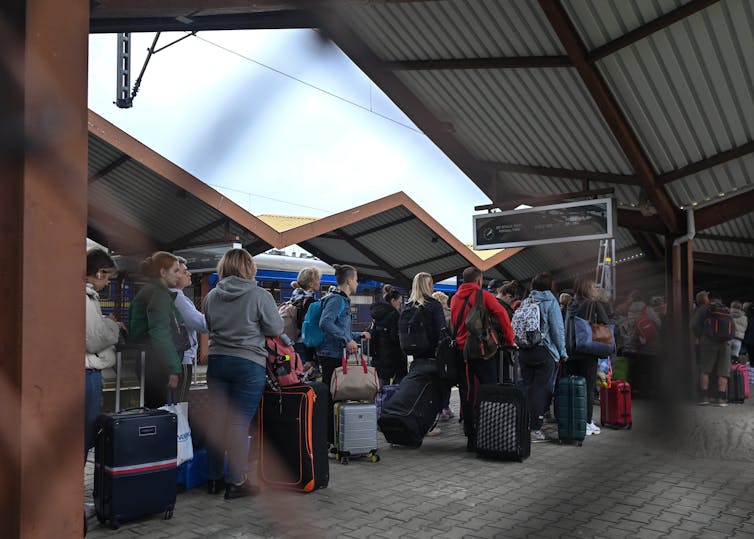
How war harms Ukrainian science
The most visible impact on Ukrainian science is the destruction of universities or disruption of their services. According to a report by the Ukrainian Ministry of Science and Education, 22% of research and higher education institutions have been physically damaged in some way. This includes five of the country’s top 20 institutions and 20 of the top 100.
Funding cuts are pervasive, too. The Ukrainian government has announced a 20% decrease in funding for academic scholarships and national research grants since the start of the war. Researchers have also faced significant decreases in salaries.
Additionally, the Ukrainian Ministry of Science and Education estimates that 10% of the roughly 60,000 Ukrainian scientists have fled the country since the start of the war. In a survey conducted by our nonprofit, we found that nearly all of the researchers who left are female, as men aged 18 to 60 are generally not allowed to leave Ukraine due to martial law. This flow of scientists to neighboring countries has given rise to fears of a brain drain.
Some researchers have started to return to Ukraine. Encouragingly, roughly one-third of researchers currently abroad say they plan to go back as soon as the war ends, with another third considering returning in the future. In our survey, we found that more than half of researchers abroad remain on the payroll of their Ukrainian institution and still teach courses to Ukrainian students using remote methods or temporary visits.
One measurable result of all of these disruptions is that the number of research papers published by Ukrainian scientists in 2022 was down by 10% compared to 2021.
The consequences of scientific loss
Scientists and the ideas they produce are important for sustained economic growth, and university research is a catalyst for local innovation and employment. History has shown that the large relocation of scientists out of Ukraine and damage to the scientific system are likely to lead to long-term harm to Ukrainian science and hinder the country’s economic recovery after the war.
Austrian and German research institutions that lost their top talent before and during World War II hadn’t recovered their research productivity even decades later. Losing skilled researchers has also been shown to undermine the training of new generations of scientists. A lack of scientists to train the next generation harmed many post-Soviet countries after the collapse of the Soviet Union.
Finally, while buildings, infrastructure and generic equipment can be replaced, damage to highly specialized equipment or materials used for research can be especially costly.
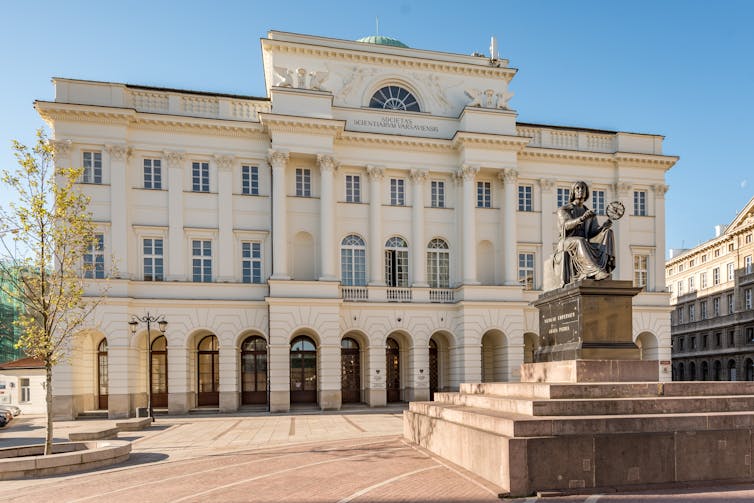
Active steps to support science in Ukraine
Various scientific organizations have suggested means of helping Ukrainian scientists – most prominently the national academies of science of Europe, Germany, the U.S., Ukraine, Poland, Denmark and the United Kingdom.
While there are many ways to help scientists affected by the war, three key interventions can be particularly effective.
First is monetary support to replace lost funding. For example, after the end of the Soviet Union in the 1990s, many Soviet scientists found themselves without funding or a salary. In response, the International Science Foundation provided grants that helped the researchers continue their work and stay in science. Those who did not receive grants were 40% less likely to be doing research 10 years later than those who did.
Funding for Ukrainian scientists today – even small amounts – helps them not only survive, but it also allows them to conduct experiments abroad, submit articles to journals with fees and maintain memberships in academic associations.
The Simons Foundation in New York is one such group providing monetary support. Earlier in 2023, the foundation announced its “support of 405 Ukrainian mathematicians, biologists, physicists and chemists who remain in Ukraine” through research stipends lasting 12 months.
A second meaningful way that organizations can support Ukrainian science is through remote research positions. These allow Ukrainian researchers to stay in Ukraine while doing research for – and getting paid by – non-Ukrainian institutions. Two organizations that we work with, Econ4UA and #ScienceForUkraine, are offering remote fellowship programs, as is the University of Massachusetts Amherst through its Virtual Scholars program.
A third means of support that scientific institutions outside of Ukraine can offer is resident research opportunities to Ukrainian scientists abroad. Scientists who continue to do research abroad are able to create important connections and learn new research methods that can help Ukraine transition into a more modern and internationally integrated producer of science once they return home. And if these researchers can keep professional ties with Ukraine, they may be more likely to return.
The harms of war on Ukrainian science are ongoing and may be long-lasting. Yet history and research suggest that when organizations take steps to help a critical mass of scientists remain active, the science system can recover.
Michael E. Rose is co-founder of #ScienceForUkraine.
Oleksandra Ivashchenko is a co-founder of #ScienceForUkraine
Ina Ganguli and Stefano Horst Baruffaldi do not work for, consult, own shares in or receive funding from any company or organisation that would benefit from this article, and have disclosed no relevant affiliations beyond their academic appointment.
Read These Next
What Olympic athletes see that viewers don’t: Machine-made snow makes ski racing faster and riskier
US Olympic skiers and scientists explain the sharp differences between natural snow and machine-made…
A terrorism label that comes before the facts can turn ‘domestic terrorism’ into a useless designati
A ‘domestic terrorism’ label that comes before the facts teaches the public to treat the term as…
Clarence ‘Taffy’ Abel: A pioneering US Olympic hockey star who hid his Indigenous identity to play i
Despite being a foundational figure in American hockey, Taffy Abel – who hid his Ojibwe heritage so…


